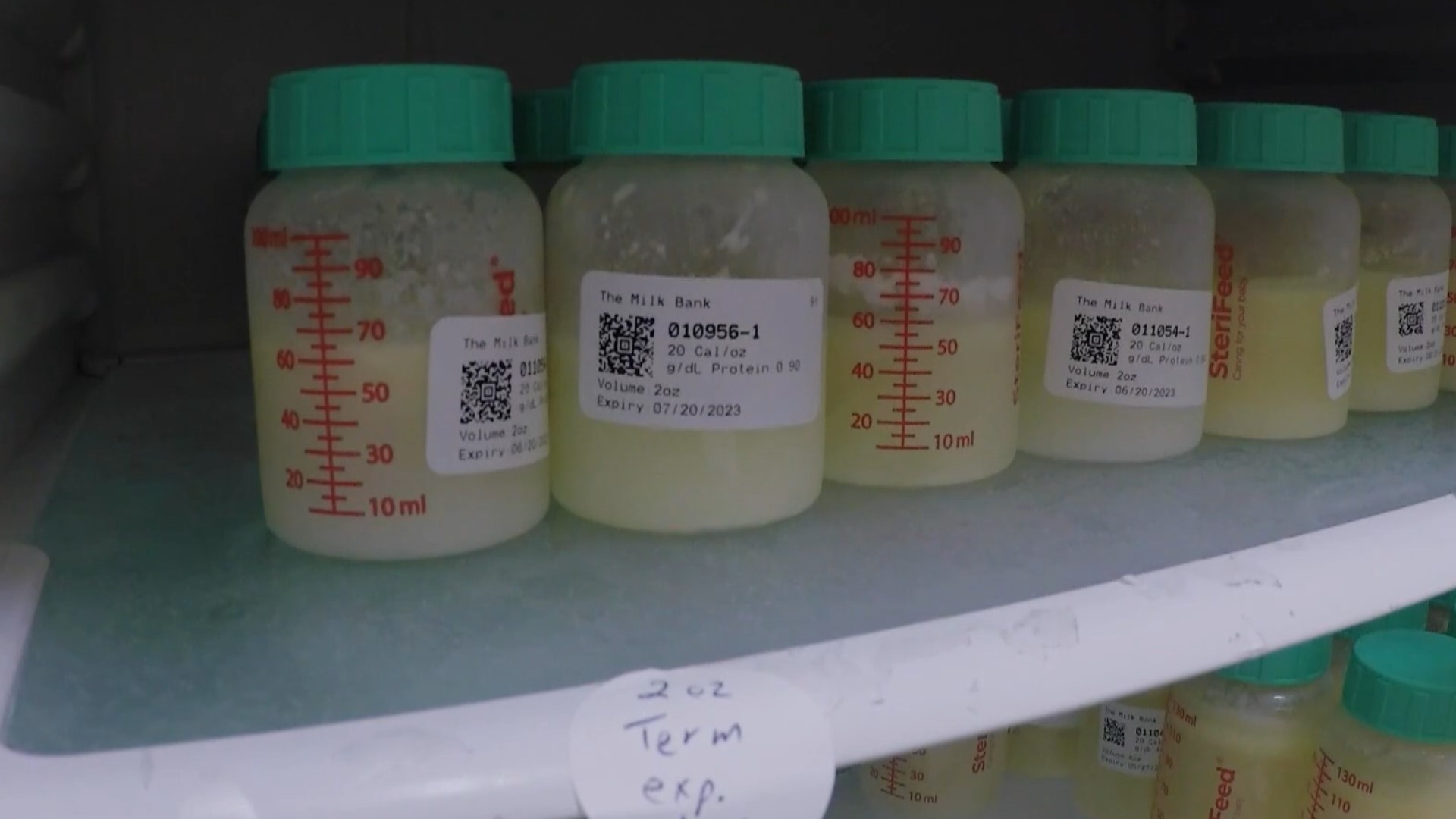ST. CLAIR COUNTY, Ill. — “Baby formula should not kill babies.”
That’s how attorney Sean Grimsley began his opening statement as the first-of-its-kind trial got underway before courtroom so packed in Belleville Thursday with dozens of attorneys from all over the country that another courtroom had to be used to accommodate the overflow who watched it on a screen.
Multiple studies show premature babies who are given formula made with cow’s milk are more likely to contract a deadly intestinal disease called Necrotizing Enterocolitis, or NEC for short.
At issue in the lawsuit that started Thursday is whether the company did enough to warn parents about the increased risk of NEC in premature babies who are given their products.
The I-Team reported in January that hundreds of cases with similar allegations have been filed by parents nationwide, but this is the first one to make it to trial.
The outcomes could change the way premature babies are fed in NICUs.
Phyllis Jones, the attorney for baby formula manufacturer Mead Johnson, had a phrase of her own: “Babies who don’t grow, don’t survive.”
She said breast milk, whether it’s donated or from a baby’s mother, sometimes isn’t enough to help premature babies grow.
The I-Team reported in January how multiple studies going back decades show premature babies who are given formula made with cow’s milk are more likely to contract NEC.
The Centers for Disease Control and Prevention estimates one in about every 10 deaths in NICUs are because of NEC. And those who survive it can be left with lifelong health complications.
Now, hundreds of parents have filed nationwide lawsuits against formula companies Mead Johnson and Abbott.
Mead Johnson issued a statement to the I-Team following the opening statements Thursday: “Mead Johnson has over 120 years of expertise in infant nutrition and stands by our unwavering commitment to sound scientific innovations that provide safe, high quality infant formula products to every parent and caregiver who puts their trust in us. We are very sympathetic to Ms. Watson, but allegations from the plaintiff’s lawyers are without merit and attempt to grossly oversimplify complex medical conditions with attacks not upheld by experts in the medical community. We look forward to vigorously defending these allegations in court.”
The first case playing out before Judge Patrick Foley centers around a Fairview Heights mother, who gave birth to twin boys in 2020 about five weeks before her pregnancy was considered full-term. They each weighed slightly more than 3 pounds.
One of them contracted NEC after leaving St. Louis Children’s Hospital where he was given donor human milk and started on a formula diet at Memorial Hospital Shiloh, where human donor milk isn’t available.
The outcomes of cases like this could determine whether the formula companies will be found liable for the deaths and long-term health complications from NEC, said attorney Stephen Reck, who filed the first NEC lawsuit three years ago in Connecticut.
“This is a bellwether case,” said Reck, one of the dozens of attorneys in town for the Belleville trial. “It will set the tone, I believe, for a lot of the cases to come.
“So it's a very, very important case. And it’s an important day for premature infants, a historic day.”
Each opening statement was about 90 minutes.
Jones told the jury there is no scientific proof that cow’s-milk-based formulas cause NEC, only that human milk better protects a premature infant from it.
She said the pasteurization process human donor milk goes through also reduces some of its nutritional value, so neonatologists rely on cow’s milk-based formulas like their products to help premature babies grow.
Grimsley told jurors the plaintiffs will be presenting research that shows premature babies fed diets of only human milk may not grow as fast as their formula-fed counterparts, but they do not suffer any long-term neurological or physical effects despite starting out smaller.
“That’s what parents really care about,” he added.
Grimsley also alleged formula companies like Mead Johnson do not invest in making human-milk formulas because it wouldn’t be profitable enough.
And he said formula companies often encourage hospitals to use their products by offering to give them to hospitals for free should they agree to use them in 90% of their feedings.
“That can be huge for some of these cash-strapped hospitals,” he said.
Grimsley told jurors they would see internal memos showing Mead Johnson knows its products increase the risk of NEC in preemies but markets it to NICUs anyway.
The trial is expected to last about four weeks.
If you'd like to get in touch with our I-Team, leave a voice message at 314-444-5231, email tips@ksdk.com or use the form below. All calls and correspondence will be kept confidential.

